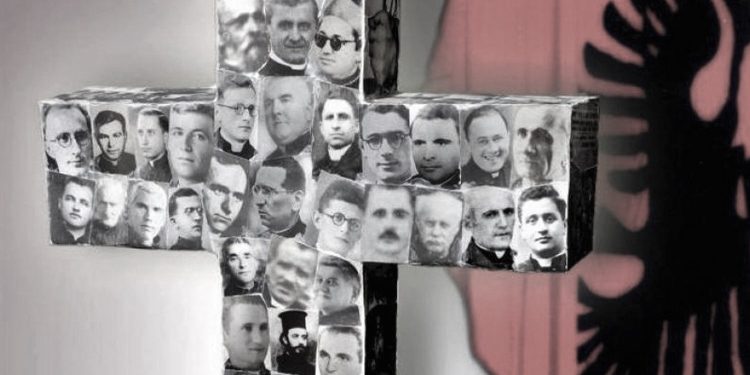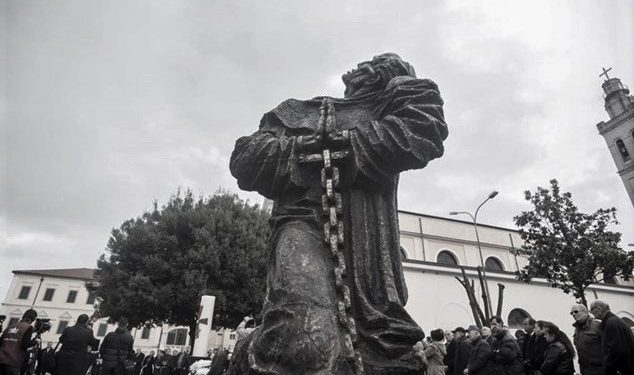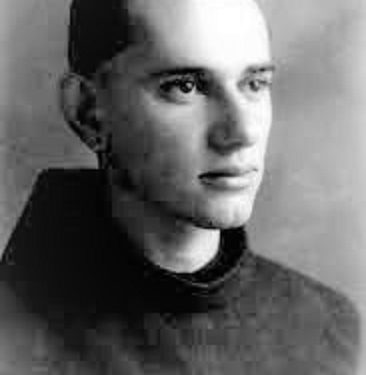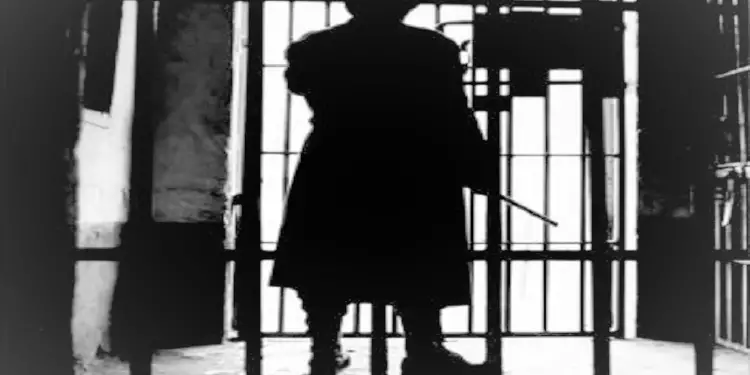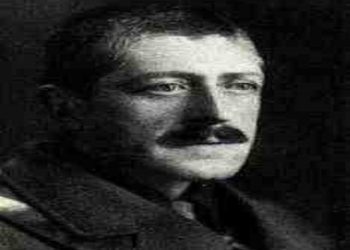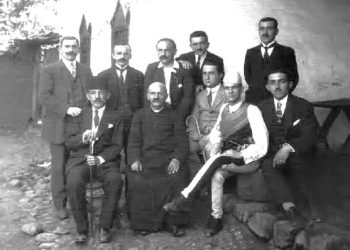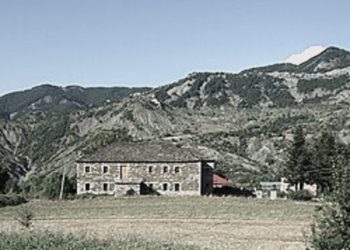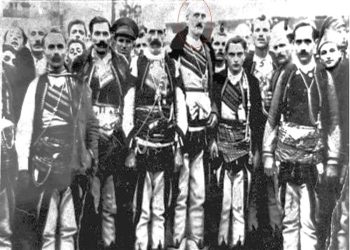Memorie.al / Lumi at Karl Serreqi, OFM, martyr. I Lumi Father Karl Serreqi, friar minor, one of the victims of the communist dictatorship in Albania, obedient priest, courageous, determined and loved by the people. The day to interweave in complete harmony the total dedication to God and the total dedication to the flock that was entrusted to him. Father Karli was arrested, sent to prison, and when asked, he either remained silent or repeated: “I die, but I don’t speak! The sacrament of Confession is a sacred secret and is not revealed”.
Dom Gjovani Qemal Kokona, knows us closely with the figure, example, message and prayer of Father Karl Serreqin. His work was the defense of the ideal for which he sacrificed his life before the threatening dictatorship and defended it with his blood and life as a martyr. To give one’s life for Christ, as he did, is much more important than to write all the literature of the world”, let us rather follow dom Gjovalin Kokona:
Who was Karl Serreqi?
Father Karl Serreqi was born in Shkodër on February 26, 1911. His parents, Kolë Serreqi and Marije Guga, gave him the name Ndue at baptism. His family was an old and well-known family in Shkodër, and his father was an esteemed person, so much so that he was called “Kolë Shenjti”. Father Karli also had two brothers: Angjelin and Česk. Faith strongly practiced in the family taught Ndu (Father Karl) to turn to God with all his heart.
He often went to the Church of the Friars in Gjujadol, and there the ideal of matching his life with the Christian experience of Saint Francis began to enter his heart and mind. In the third year of high school, at the age of 15, he entered the seminary of minor friars in Shkodër and after two years he asked the superiors of the order to be admitted to the novitiate.
Wearing the Franciscan friar, he took the name Friar Karli. After finishing Philosophy, in 1932, he received the eternal conditions and after finishing Theology, he was ordained a priest on June 29, 1936 in Italy, together with Fathers Viktor Volaj and Filip Mazreku. He returned to Albania and after a year was appointed parish priest in Upper Curraj, and later in Berishë and, in 1943, in Rajë, all the parishes of the Tropoja mountains, areas that are still difficult to reach today.
Friar minor with an exceptional character. He stood out for his joy, sweetness and gentleness. An obedient priest, courageous, determined and loved by people. It was balanced and taciturn. He had great faith and very diligently cultivated the spirit of piety.
He loved music and knew how to play the violin quite well, which was given to him by his brother, Angelini. Although he came from a wealthy family of merchants, he chose the spirit of Franciscan poverty and lived it joyfully.
The day weaves in complete harmony the total dedication to God and the total dedication to the flock entrusted to him. It was a “purple flower”, “a real violet, hidden and fragrant”, isolated there among the mountains, just like in that “mountain of evangelical happiness or, the mountain of conversion”, which enabled a fruitful ascetic itinerary of holiness .
Father Zef Pllumi, who had spent two years in the parish with him, writes that: “I loved and valued him not only for his humility, but also for his calm and sweet rudeness”. In those difficult mountains, Father Karli considered it a privilege to approach the poor Christ and the beloved cross, imitating a little Saint Francis.
When the so-called power of the people was imposed, a bell of lead had descended on the whole of Albania and especially on the Catholic Church. Despite his angelic demeanor, Father Carl could not sleep peacefully, but could only surrender to God, so that, like Job; he would be tested in loyalty and love. And at the peak of his pastoral zeal, the hour of trial came to him, in Raja, on October 9, 1946, at the age of 35. There was a fight between communist and anti-communist forces.
In the fight, Lush Martini is mortally wounded, and he asks Pjetër Kuka to find him a priest. Peter goes to the Church where Father Karl was, who, without thinking twice, takes with him the Eucharist and the Oil of the Sick. Fortunately, he finds the wounded man still alive and, after confessing, he gives him the solution, thus reaching in time to give him the anointing and communion, just before this mortally wounded man gave up his soul.
But he also turned to a communist partisan who was writhing in the throes of death, shouting: “Mother, mother!” and sub conditione, gives him also the solution of his sins, making the sign of the cross on his forehead and praying to God for him.
Meanwhile, a communist partisan who had been following the entire scene emerges from a thicket. And then the officer of that communist gang arrives, who immediately uses violence on Father Karli because he refuses to reveal the words spoken in the confession by Lush Martini.
When he noticed that he was not succeeding, then he ordered to handcuff Father Karl. Tied like that for 13 hours on foot, they sent him to Kodër-Shëngjergj, where he was subjected to the first phase of the investigation, by those “officers” who were real terrorists, like the infamous Xhemal Selimi.
When they saw that even there they did not succeed, they sent him to the Great Prison of Shkodra. The refrain was the same: to tell what he was told in the confession. But Father Karl, either remained silent, or repeated: “I’m dying, but I don’t speak!” The Sacrament of Confession is a sacred secret and is not revealed”.
Despite the great hardships, Father Karli did not give up, but continued to be humble and attentive to the needs of others. For this, it is worth mentioning a testimony of his co-sufferer, Father Dioniz Makaj, who said: “Father Karli was with us in the big prison where, in indescribable conditions, everyone was starving.
One day Father Karli said to me: “Do you mind if I ask you something?” I answered: “I’m not sorry”! He continued: “Do you mind if I bring you some bread that I have”? I answered: “No, I’m not offended, but I’m sorry that you take it away from yourself.”
So for several days, he brought me a ration of bread a day. I understood that he acted in secret because he was suffering and did not want to be noticed” – Father Dionysi continues his story: “Once, after many terrible tortures, they brought him to our cell. We asked him: “Father Karl, have they made you suffers”? He answered us: “Like all of you”! He didn’t want to talk about the torture.”
Father Dionysi also remembers well the calmness, which is not menefregism, but a spiritual calmness, that Father Karli preserved at every moment. This is how Father Dionizi testifies: “The last day before the decision (from the Military Court), Father Karli told us: ‘Tomorrow they gave me the decision.’ The next day, both when he went and when he came, he had the same attitude and the same behavior.
We asked him: “Did they punish you”? He answered: “Yes”. “With what punishment”? – We asked him. “With hanging”, he answered us completely calmly. And since we were stunned, Father Karli said to us: “Why are you worried? I am glad that I am dying for Christ”! Of course, the accusations that led to that decision were made up and fabricated, but the decision of punishment was made on the day that Father Karl refused to tell the things that had been told to him in the secret of Confession.
Even the state defense lawyer himself, lawyer Ferdi Kumbaro, requested that his innocence be recognized, but the prosecutor together with the judges could not accept such a thing, in front of an invincibility, like that of Father Karl, that for them, in the malicious ignorance of them, it was incomprehensible. Although innocent, he is sentenced to death on January 18, 1947, a sentence that will be commuted to life imprisonment on February 21, 1947.
This change in punishment was met almost with regret by Father Karli, who, when he returned to the cell, after communicating this change, said, even with a note of humor, to Father Zef Pllumi: “I was not lucky with a martyr, now I will spend my whole life languishing in these dirty prison rooms”, and then, with serious determination, he adds: “May God’s will be done”!
Then he will suffer this ordeal in the camps of Beden, Maliq, which were real gulags, and finally in the Burrel prison, known as the “Death Prison”. But even among these hells, these extermination camps, his character will remain sweet, strong, calm and determined, “the model of a saint”, as Zef Pllumi defines it. “If Christ yes, why not me?” – was the question that Father Karl asked himself and that helped him to discover the beauty and stability that religion gave him.
Although his spirit was strong, his body was getting weaker and weaker from all these sufferings and suddenly on April 4, 1954, at 6 o’clock in the evening, his heart stopped beating, thus making the sacrifice, for which, over and over again, especially during the years of imprisonment, he was prepared by offering himself to martyrdom.
During these years, he had appreciated more and more deeply the mystery of Christ, which little by little was concretized in him, a mystery that encouraged and supported him to experience the same sufferings that the Divine Teacher had experienced.
His body disappeared, but his testimony, as Father Zef Pllumi also testifies, remained for others and especially for the brothers of the Franciscan order, an ideal and model of the Franciscan priestly and pastoral life: this simple man, a hero of the sacrament of Confession.
In conclusion, it is worth mentioning the assessment given by one of his fellow sufferers, Ahmet Rifat Kopliku: “Father Karl Serreqi belongs to the category of noble persons, but unfortunately without a grave and without a name. He did not write the history of the epic of the nation, nor satire and immortal lyrics, like the Franciscan Father Gjergj Fishta, the Jesuit Father Ndre Mjeda, he did not write strong prose like Dom Lazër Shantoja and beautiful dramas like Dom Ndre Zadeja, he did not summarize the Canon like Fr. Shtjefën Gjeçovi did not even collect folklore material like the Franciscan Father Donat Kurti, but he made another masterpiece, and this does not reduce the value of his work, on the contrary, it makes it gigantic.
His work was the defense of the ideal for which he sacrificed his life before the threatening dictatorship and defended it with his blood and life as a martyr. To give one’s life for Christ, as he did, is much more important than to write all the literature of the world”.
Prayer for Canonization as well as to ask for necessary graces
Holy Trinity,
Father Son and Holy Spirit,
To you be glory, honor and blessing,
Which you have given to the holy Church
Of the Karl Serreqi River,
Regular priest of the Order of Friars Minor,
As a model of faithfulness to Christ
And unconditional brotherly love.
Please kindly:
As you were worthy to bless him in Heaven,
Deign to praise him even here on earth
Giving us the grace we so long for
And that, with his intercession, we ask with faith
(at this moment the request is expressed).
We believe in You, Lord. Thy Kingdom come! Amen.
Our Father. Goodbye Mary. Glory to the Father. Memorie.al




